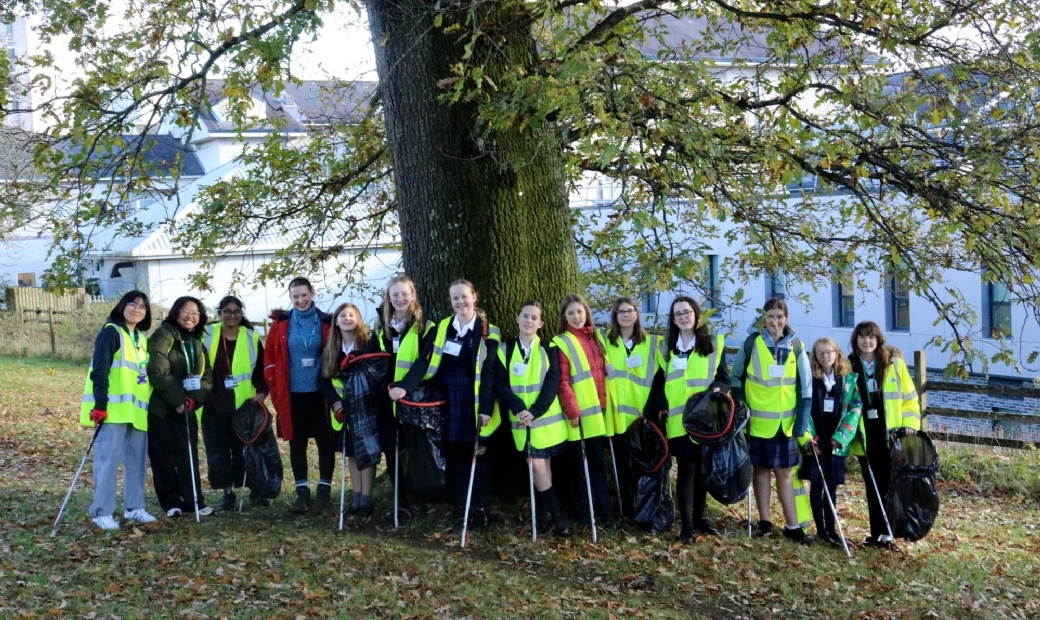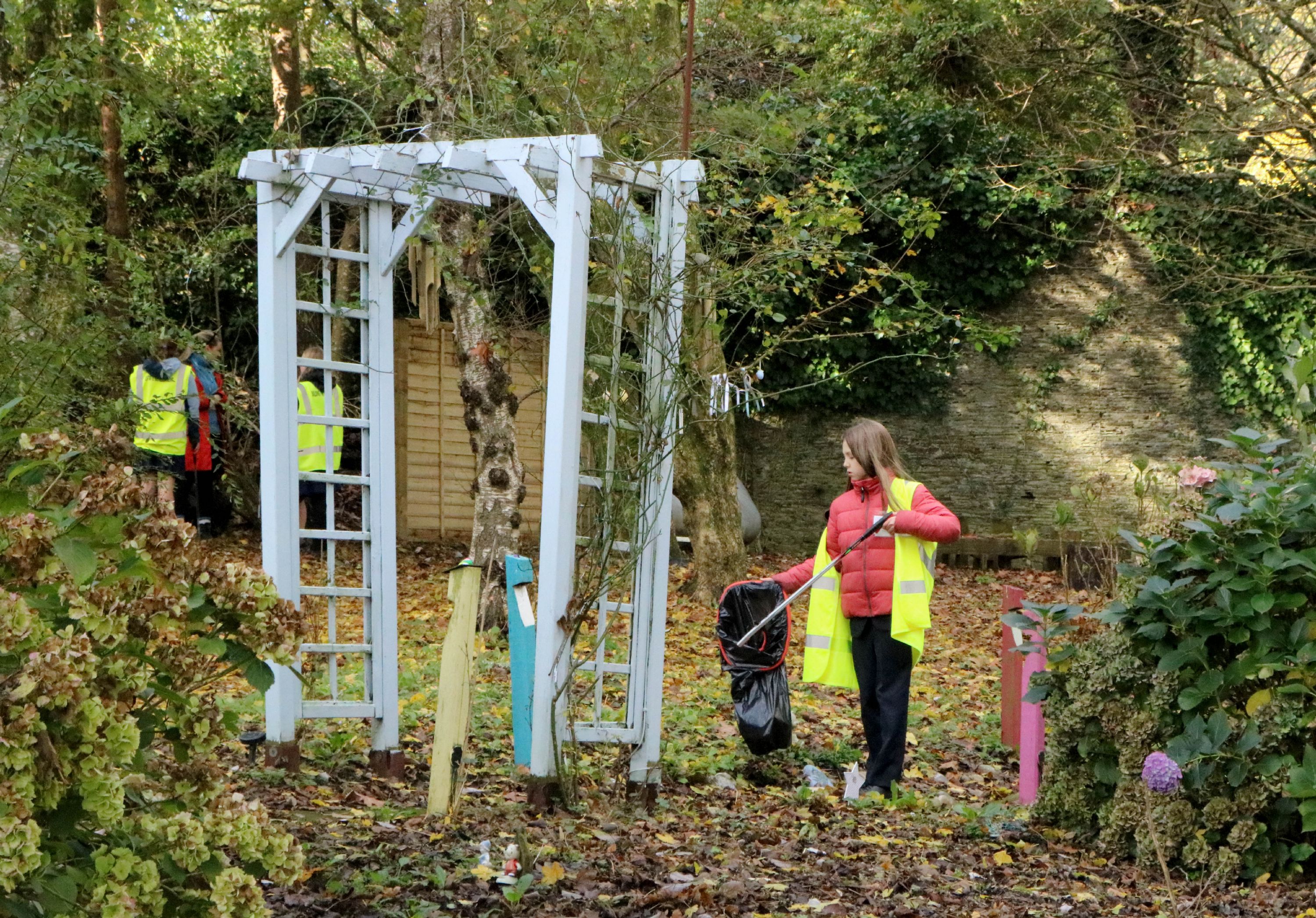Earth Alliance Litter picking

The PHSG Earth Alliance group has been working in conjunction with Derriford Hospital and their sustainability support department on projects at the Derriford Hospital site. This term they assisted in a litter picking project. This not only helped clean the hospital grounds, but also provided valuable insights into how the hospital manages sustainability amidst its challenges.
Article by the Earth Alliance group:
Arriving at the hospital, we met up with Sustainability Programme Support Manager, Sophie, who guided us around the hospital grounds where we started our litter pick. We gradually made our way round the site while stopping at certain areas. Sophie led us to areas such as the baby memorial garden. When we started, many of the students noticed there was an abundance of rubbish on the ground despite being near a bin. We also noticed a large number of plastics and bottles. The experience was eye-opening, particularly when we noticed the huge amount of discarded cigarette butts despite the hospital being a non-smoking site. These were most evident near the bus stops, where a corner was littered with large piles of them.
Eva, one of our volunteers, shared her thoughts:
“I enjoyed the litter picking because I helped the environment and was shocked to see how many cigarette butts there were despite it being a non-smoking site.”
We stayed at the hospital and continued around the site where we noticed that there was less litter than expected and Sophie suggests that due to it being winter, there are fewer people outside. Despite this, we collected a total of 3.5kg within the short time we were there!
After completing the litter pick, we debriefed and reflected on the items we collected. Many said that they picked up plenty of plastic wrappers, packages, bottles and even lighters and vapes. Students said that they picked up cigarette butts the most, so we decided to do some further research on the life cycle of cigarettes as we are concerned about the environmental impact, especially when there are so many of them.
When consuming cigarettes, the tobacco leaves a toxic residue, and the smoke lingers in the environment, which is harmful as it is not only harming them but others around them due to second-hand smoking. The butts and the toxic third hand smoke (THS) materials pollute the environment such as going into water sources and possibly contaminating them. This can go into our oceans where it not only poses a threat to the wildlife who rely on the oceans to live, be it aquatic animals or other organisms, but also humans. This is because there is a chance this toxic residue will be in our soil and water. This means there is a chance that our own food could eventually become toxic. This will lead to people being ill and thus cause a domino effect.
We also explored the impact of smoking on heart health, a significant risk factor for cardiovascular diseases. The chemicals in cigarettes damage blood vessels and increase the likelihood of atherosclerosis- plaque build up in the arteries. Research shows that even one cigarette per day increases the relative risk of coronary heart disease by 47% and stroke by 54%. This ties into our collaboration with Derriford Hospital’s art project, where we transform waste into a symbolic heart sculpture, representing the connection between environmental care and human health.
Alongside the research, Sophie shared the unique sustainability challenges faced by hospitals like Derriford. The reliance on single-use plastics for safety and infection control, such as PPE and plastic speculums, creates significant waste that cannot be recycled due to clinical waste regulations. Despite these barriers, UHP’s sustainability team is making strides with initiatives like reusing walking aids, starting a recycling service for used inhalers, and fostering sustainable behaviour through their Green Champions program. These efforts highlight the balance between patient care and environmental responsibility.
This litter picking initiative at Derriford Hospital was more than just a clean up effort - it was an opportunity to learn and reflect.
From understanding the reasons for litter pick and researching the impact of smoking, to exploring the challenges hospitals face, we realised that every small action contributes to a larger change and learnt more about the balance between healthcare and sustainability.
We hope our efforts inspire others to think critically about their waste, adopt sustainable habits, and take steps forward in protecting the environment. Together, we can make a difference.
Quotes from our wonderful student volunteers:
“It was a different kind of experience, normally when you go into the hospital you don’t really take in the litter. But when you go, and you just focus on that, you can see how bad and how much there is.” - Alice
“It was a good experience because usually we are in the hospital for health purposes but I was very surprised with all the rubbish.” - Fay
“I really enjoyed it because when I was in eco club in primary school we only talked about pollution and the environment.” - Eva T.


